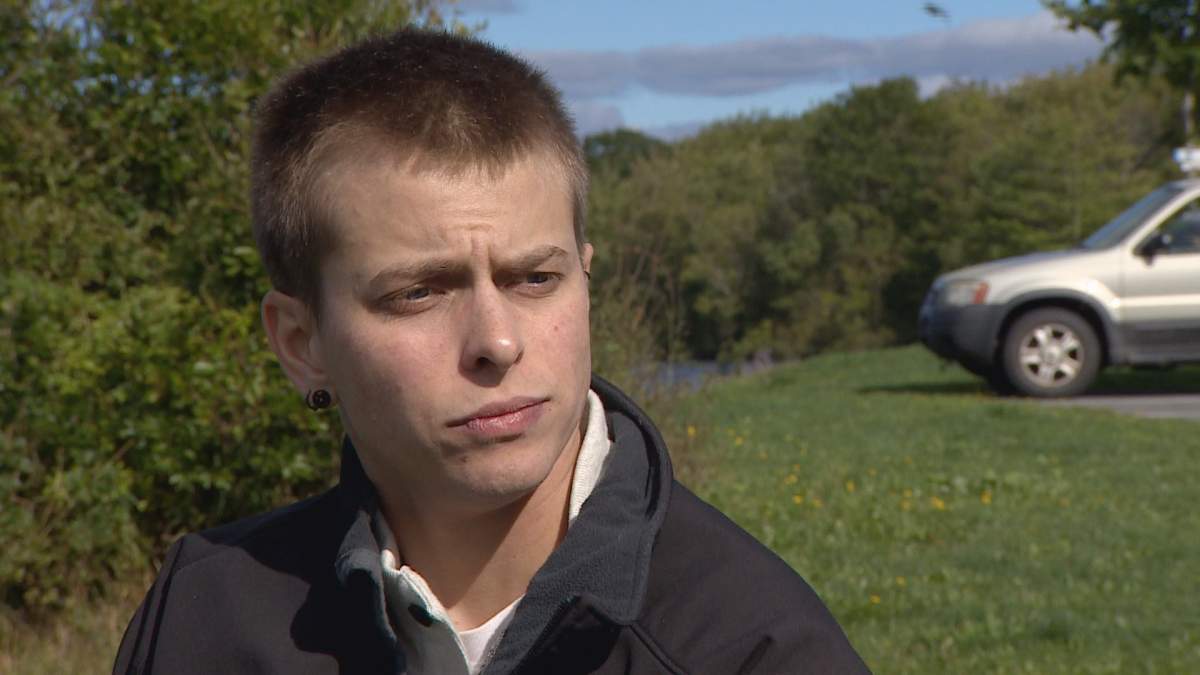Chandler Hennigar says he hopes by speaking out other families won’t face the heartbreak that his has.

In January 2015, his brother Codey Hennigar killed their mother Ann Ward and maternal grandparents Ida and Bill Ward. In January 2017, he was found not criminally responsible for their deaths due to his untreated schizophrenia.
“We were helpless and so was he and we weren’t helped,” said Hennigar
READ MORE: Mentally ill N.S. man who killed his mother, grandparents denied greater freedom
Hennigar says for years his family tried to get him help. At different times they called the province’s mental health mobile crisis team and even police.
“It really hurts, because it’s sad when you see someone that really needs help and you know that they’re not a bad person and that they deserve that help and its not being given to them,” he said.
The Schizophrenia Society of Nova Scotia says Codey’s case reflects a system that is “crisis driven” rather than focusing on prevention and proactive treatment.
‘People can’t access care when they need care’
In an interview, the society’s executive director Diane MacDougall said her organization’s experience is that “people can’t access care when they need care.”
She said people can be left to deal with their illness on their own for “quite some time” before they get care. For example, MacDougall said the wait to see a doctor can be as long as six months to a year.

Get weekly health news
“We’re definitely in a crisis situation with accessing care,” she said. “The goal would be that we would receive care when we need care, as opposed to having to be in a full blown crisis at the time.”
She said not for profits like the schizophrenia society can help patients and their families navigate the system and be supported while they wait.
Peer support groups for people suffering from a mental health illness are a key way that MacDougall said individuals can get help from the schizophrenia society or other mental health organizations in the province. She said similar groups are also available for families and other caregivers.
‘We’ll always have opportunity to improve’
Health Minister Randy Delorey came to the defence of the province’s mental health services, saying there’s a “wide variety of programs in place to support people along the spectrum at whatever point they are in the system.”
But he added “We’ll always have opportunity to improve our system.”
READ MORE: N.S. government invests $8.6M in mental health services
In the May election, the Liberals promised several changes to mental health care services and more cash for programs and staff. Among the promises was the creation of a “provincial mental health services plan” which would include a new central intake system and the hiring of 35 more mental health clinicians over four years.
“We want to make the system work as seamlessly as possible so that it reduces the challenge of navigating the system,” Delorey said about the new intake system. “We want to make sure we’re there and the system works for the individual.”
Delorey wouldn’t give a specific timeline for the changes but said the intake system will see “see significant progress this year.”
‘Something’s gotta give’
Hennigar said he hopes his decision to speak out will kick start changes to the the mental health system. “I want something to be different, something’s gotta give,” he said.
“Maybe we could do something about it so that people don’t have to die in vain or die at all.”










Comments